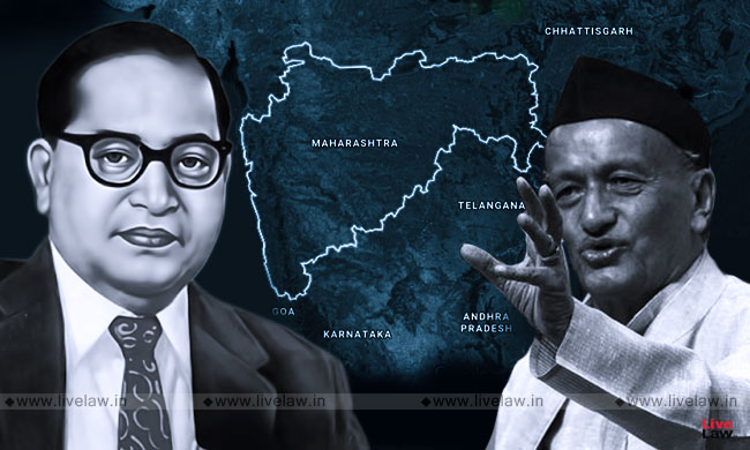Constitutional Morality, Ambedkar's Fear And Governor's Discretion
Anurag Bhaskar
28 Nov 2019 12:14 PM IST

The political battle to form a government in Maharashtra finally seems to be over. Yet, the entire episode once again forces us to scrutinize the role of governors in appointing a Chief Minister, whenever there is a fractured electoral mandate in a State. The Maharashtra episode appears to be a replica of the events in Karnataka in 2018, when the Chief Minister (belonging to the ruling party in the Centre), initially appointed by the Governor without showing clear majority, subsequently resigned even before going for the floor test to prove majority support, after the Supreme Court intervened by ordering an immediate floor test in the State Assembly.
It is expected from a Governor that she/he won't misuse the discretion granted to her/him under the Constitution for partisan gains. The constitutional office of Governor cannot be converted to that of a political emissary. It is for this reason that the remarks made by the Supreme Court, while ordering the floor test in Maharashtra, about fostering and imbibing of constitutional morality by the constitutional functionaries, must be welcomed. A Governor should imbibe constitutional morality, in simple terms, means that she/he would exercise the discretion conferred upon her/him by the framers of the Constitution in all fairness. During the framing of the Constitution, Dr Ambedkar had a fear that wherever there will be absence of constitutional morality, there could be misuse of power. The conduct of our Governors reflect that Dr Ambedkar's fear has come out to be true.
Dr Ambedkar had first made a reference (4 November 1948) to constitutional morality while defending the detailed structure of administration being incorporated into the Constitution. The idea of constitutional morality was originally conceptualized by Greek historian, George Grote, in the nineteenth century, in his account 'History of Greece' (1851), which was based on the establishment of democracy at Greece's Athens — the first known democracy in the world.
In the fifth century BC, Kleisthenes, an ancient Athenian lawmaker, had initiated democratic reforms in Athens by introducing a new Constitution, which extended political franchise to the "excluded mass" and sanctified "free speech and equal law". Concerns however existed regarding the working of the new democratic machinery and principles, as the Athenian noble class had "yet to learn the lesson of respect for any constitution". Power struggles and bitter party rivalries even under the new democratic norms could disregard Kleistenes' new Constitution and its future. This required, as Grote narrated, a "rare and difficult sentiment" as "constitutional morality", which would force the "leading ambitious men" to respect the Constitution. Grote defined constitutional morality as "a paramount reverence for the forms of the constitution, enforcing obedience to authority and acting under and within these forms…".
Ambedkar broadened the scope of Grote's conception of constitutional morality by explaining that the 'forms' of a constitution — which constitutional morality seeks to protect — has two essential ingredients. The first, in his words, is that "the form of administration has a close connection with the form of the Constitution". The second ingredient, Ambedkar recognized, is that even without altering its form, the Constitution can be perfectly perverted "by merely changing the form of the administration" and making it "inconsistent and opposed to the spirit of the Constitution". Ambedkar was warning against the possibility of abuse of power, which could undermine the processes and values established by the Constitution. He believed that those in office could misuse power and authority for selfish motives and damage our constitutional democracy. Ambedkar later stated (1952) that the text of the Indian Constitution is "only a skeleton", and its "flesh" is to be found in constitutional morality. Ambedkar further clarified that the conception of constitutional morality is similar to that of constitutional conventions in England, which political leaders follow while in office or in opposition.
In Ambedkar's view, since the element of constitutional morality was missing from the people at the time of independence, it became necessary that administrative details were incorporated into the Constitution. Ambedkar's belief that "it is wiser not to trust the Legislature to prescribe forms of administration" at the time of constitution-making, reflects a larger goal. In laying down an administrative blue-print, the Constitution institutionalized fairness and non-arbitrariness in governance and politics for future regimes. Ambedkar was quite particular about writing every detail into the Constitution. He wanted to institutionalize every step that constitutional functionaries would take in the future. Ambedkar's belief was thus: The lesser the discretion left, better the chances of power being regulated.
Ambedkar's constitutional ideas suggest that in order to prevent the abuse of discretion by a Governor for political motives, it is necessary to institutionalize the procedure to be followed by her/him regarding the formation of government whenever there is a fractured mandate in a State election. The Supreme Court must therefore lay down guidelines to be followed by a Governor in such circumstances. Only when a Governor's discretion is minimized, we can witness better political as well as constitutional processes. This would also facilitate cultivation of constitutional morality, which Dr Ambedkar had wished for, around 70 years ago.Anurag Bhaskar is a Contributing Editor of LiveLaw.
He is a LLM holder from Harvard Law School. He tweets at @anuragbhaskar_


